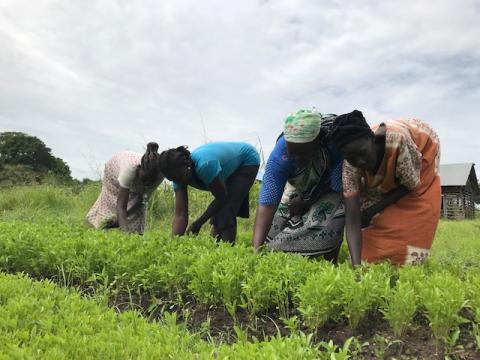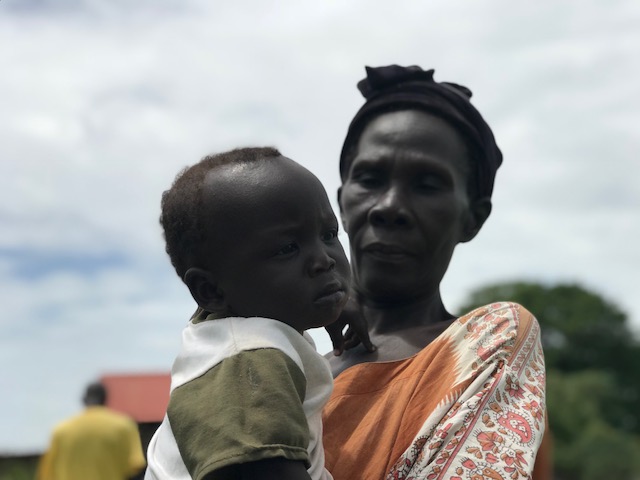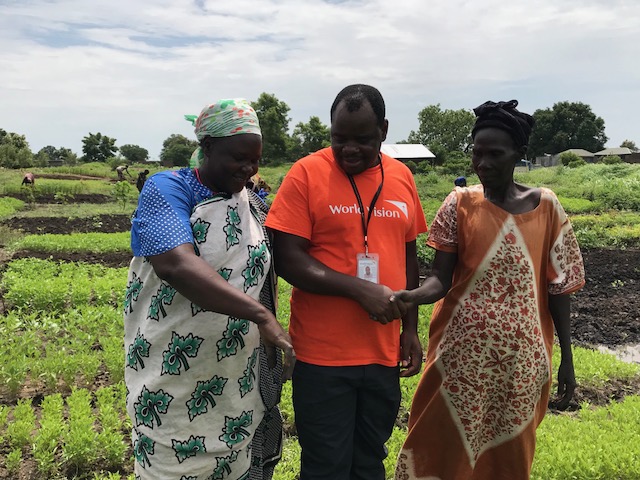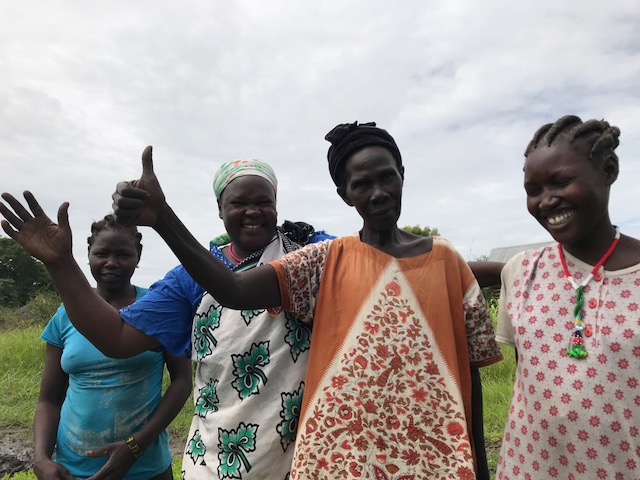What makes the hearts of South Sudan’s women sing when the rains come?

The river in the bend was full and gushing. The bush along the road was thick and lush. The rains that started on May have become heavier on June and July making farmers and growers happy. As we approached the small village of Kapuri, around 50 community folks, mostly women, were busy working but smiling with pride in their own garden plots.
Vaida, a 45-year old mother of 11, is one of the beneficiaries of World Vision’s food security and livelihoods project in partnership with Food and Agriculture Organization (FAO) that promote urban and peri-urban gardening. Composed of groups of 25 people, the women and men undergo training that includes how to grow vegetables, pest control & management and learning how to market their products.
The groups were also taught food preservation techniques and how to cook nutritious and healthy food for their families. A plot of land provided by the community is allocated for each family registered in the project. That day, Vaida brought her youngest child 9-months old Isaac, in the garden.
She said, “I have started with my garden for six months now and it is helping me and my family. We are eating healthy food and I am able to sell the rest in the market for extra income for our needs.” Every 21 days, Vaida sells juice mallow she harvests from her garden for SSP500 (US$1.5) in the local market. It might not be much but for her, it is a good start into doing something productive
Started last year as an offshoot to the nutrition vouchers program, the gardening project has trained and provided support to 750 households, including seeds and tools. World Vision helped negotiate with communities for the plots of vacant land so that they can be turned into gardens.
A social worker who was working in Western Equatoria, Vaida had to flee from her village and take refuge in Kapuri, located outside of Juba, because of the ongoing conflict. “It is sad that I was born during the conflict and until now, it is still the same conflict my children have to endure.” Vaida adds, “I wish we will soon have peace in South Sudan. I want my children to grow up in peace and go to school.”
Gift Sibanda, World Vision’s zonal programme manager in Juba said the project has already organized 30 groups composed of 25 people each. “The people are hardworking and it is easy to work with them. All we need is to improve their agricultural skills. Most of them are farmers and are familiar with gardening but require technical assistance in order to produce more”, he says.
Seeing the value of the program in the long term, the health officials in facilities where World Vision has nutrition program also provided vacant spaces to be turned used as demonstration gardens. In Kator Health Centre, Rose and two other mothers, Jane and Eunice who are part of the Mother Support Group were excited to share how their vegetables are thriving. “We also do this at home and share our produce to mothers who need them”, Rose says.
At least 168 women around the health centres in Juba town are part of the program. Rose adds, “Economically, it is a very good project. Our families can eat healthy food and we also earn if we plant more and sell. All of us now know how to do it and we have improved our skills as a result of training from World Vision. The seeds and other support from World Vision also helps us a lot.”
An estimated 7 million people in the country are food insecure and over a million children are suffering from malnutrition. “It is not enough that we help address the people’s health and nutrition needs. We need to provide them with long-term solutions so that they can produce their own food supply. It is our hope that what they learn from the project will give them sustainable options in the future", added Sibanda.



